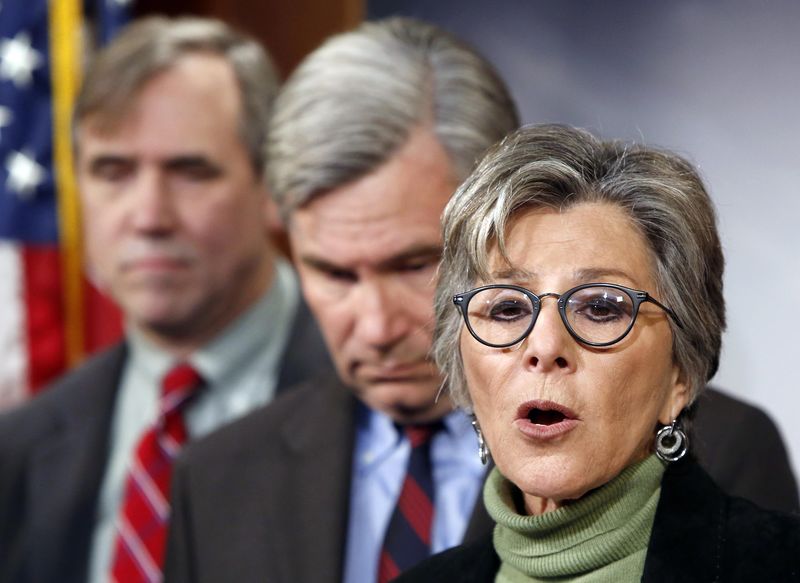Investing.com’s stocks of the week
By Sharon Bernstein
SACRAMENTO, Calif. (Reuters) - When U.S. Senator Barbara Boxer announced she would not seek re-election after 33 years in Congress, there was no tearful speech by the senator, no news conference, not even an emailed press release - just a video posted on a campaign website.
The political scramble that followed Boxer's announcement also took place online. Three of the state's best-known politicians took to the web and social media to declare their own plans, including state Attorney General Kamala Harris, when she became the first declared candidate on Tuesday in a post on her quickly erected campaign website.
It's part of a trend of politicians using safer, quicker and more effective online methods to announce they are running for an office - or even not running, as was the case with Lieutenant Governor Gavin Newsom.
"We're reaching a point where a majority of political communications begin online and then flow to more traditional outlets," said Jason Kinney, a political consultant to Newsom, who fueled speculation about a run for governor in 2018 when he used Facebook on Monday to say he would not seek Boxer's seat.
The Facebook statement allowed Newsom's team to move far more quickly than it could have had he held a news conference, Kinney said. It also let Newsom catch the ever-earlier news cycle, providing fodder for reporters sooner than a traditional press event would have.
Such benefits have fueled a rapid change in political communication styles at both the state and national levels.
Last month, possible Republican presidential contender Jeb Bush announced he was exploring a run in a holiday Facebook post.
"Merry Christmas and Happy Hanukkah!" Bush wrote, speaking first of family and football, then politics. "I have decided to actively explore the possibility of running for president of the United States."
After Boxer's announcement, former Los Angeles Mayor Antonio Villaraigosa used his Facebook account to say he was exploring a run for the seat. Billionaire environmentalist Tom Steyer wrote on the Huffington Post site that he would decide soon on the race while U.S. Representative Loretta Sanchez, a Democrat, also used Facebook on Tuesday to announce that she too was pondering the job.
ONLINE ADVANTAGES
Compare that to a year ago, when Republican candidate Neel Kashkari announced his run, ultimately unsuccessful, against Democratic Governor Jerry Brown in a widely covered speech. In 2010, Republican Carly Fiorina started her unsuccessful campaign to unseat Boxer at a town hall meeting.
Rose Kapolczynski, Boxer's longtime campaign adviser, said online announcements have many advantages over traditional rallies and news conferences. They're easier to organize, considerably cheaper to stage and they also protect the candidate from skepticism that might arise if a rally or news conference was perceived to be poorly attended, she said.
Online announcements also have the benefit of speed.
Working with Villaraigosa's Facebook post, "It took me 45 seconds to put it up and within four and a half minutes every news agency in the world was reporting it," said his campaign consultant, Michael Trujillo.
Once Harris made a final decision to run late Monday, her campaign website was built overnight, going live at 7 a.m. Tuesday to a rush of publicity and attention, said adviser Brian Brokaw.
Politicians have been flirting with voters online for years. Barack Obama raised money for his first presidential bid online, and Brown tweeted a picture of himself signing candidacy papers on Twitter to announce his re-election bid last year.
As far back as 1995, Tennessee Republican Senator Lamar Alexander announced a bid for his party's presidential nomination on the Internet.
But political hands predict that more and more campaigning will take place on social media and online.
"Campaigns are changing very rapidly," said Jessica Ng, a communications strategist who has worked on Republican campaigns, including Kashkari's. "Technology is changing the way we communicate with each other and it affects how candidates are able to communicate with voters."
(This story has been refiled to fix typo in 'decide' in ninth paragraph)
